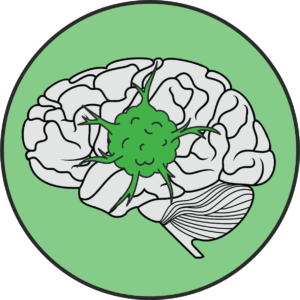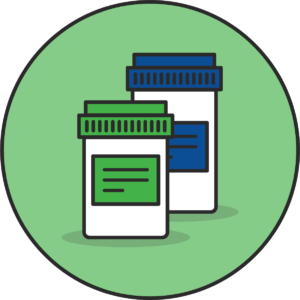
ABEMACICLIB PLUS LY3214996 FOR RECURRENT GLIOBLASTOMA
About the Glioblastoma
clinical trial
The Ivy Brain Tumor Center at Barrow Neurological Institute, a nonprofit translational research program, is conducting a Phase 0/2 clinical trial to evaluate the combination of two targeted therapies, abemaciclib (a CDK4/6 inhibitor) and LY3214996 (an ERK inhibitor), in patients with recurrent glioblastoma. It is the first time this newly-developed drug combination will be tested in brain tumor patients.
The goal of this study is to confirm that both drugs are capable of crossing the blood-brain barrier. Patients with positive results may continue to receive treatment in a Phase 2 study arm. We will also confirm if the study drugs are hitting the molecular targets.
- CDK4/6, or cyclin-dependent kinase 4 and 6, are two proteins found in cells that accelerate growth and division. Abemaciclib, a CDK4/6 inhibitor, has the ability to block these proteins and prevent tumor cells from dividing.
- ERK proteins transmit a signal from the surface of a cell to the nucleus that triggers cell division. LY3214996, an ERK1/2 inhibitor, is a small-molecule drug that can stop the signal and block cancer cell growth.
- Abemaciclib is FDA approved for the treatment of breast cancer.
Glioblastoma Trial Details
Recruiting
Abemaciclib and LY3214996
Glioma,
Glioblastoma
50 Participants

You may be eligible if:
- You are 18 years or older
- You have had prior resection (surgical removal) of a histologically diagnosed high-grade glioma (III and IV)
- You have been treated with radiation and a chemotherapy drug called temozolomide
- Your doctor has told you that your tumor has recurred (come back) or has progressed (grown or changed)
How it works

Once enrolled, a patient receives a very small exposure to the experimental therapy days before a planned operation to remove their tumor.

This exposure is enough that when we remove the tumor, our team of experts can ask two important questions:
- Did the treatment penetrate the tumor?
- Did the treatment have its intended effect?

If the drug penetrates the tumor at sufficient levels, the patient may move forward with receiving a full dose of the treatment – advancing to a Phase 2 clinical trial.

Alternatively, if the treatment has no effect on the tumor, the patient can enroll in another clinical trial without losing time or receiving ineffective treatment.
Am I Eligible?
Submit a free trial screening request today to learn if you may qualify for any of our studies.


